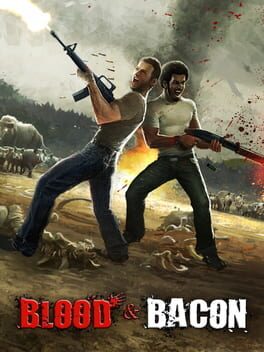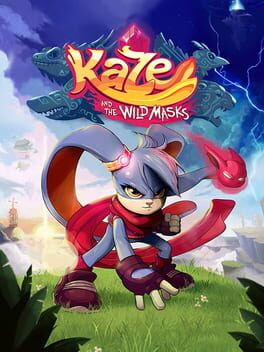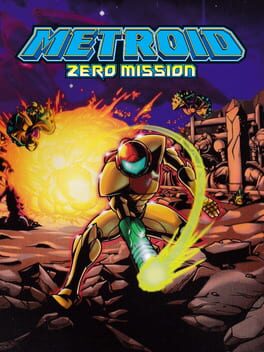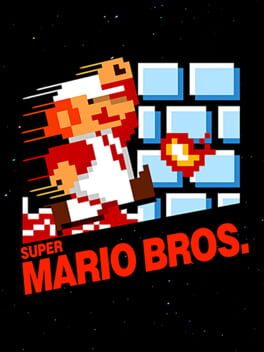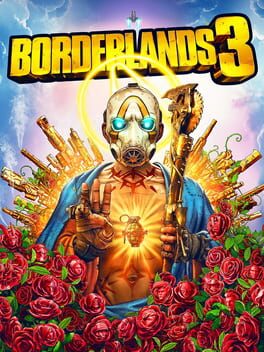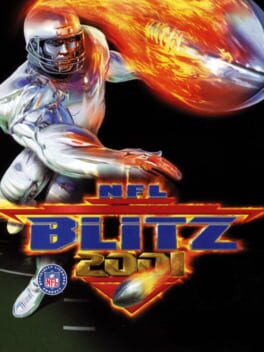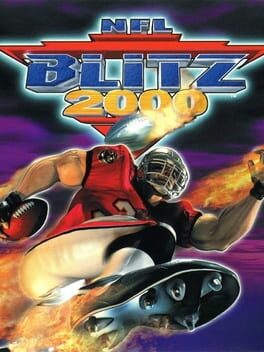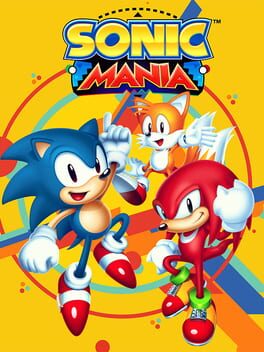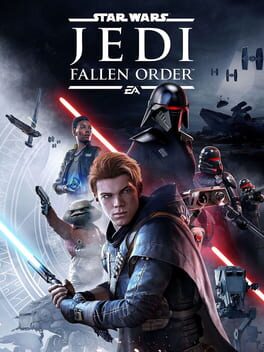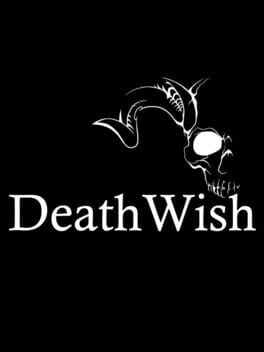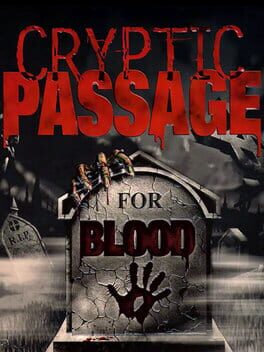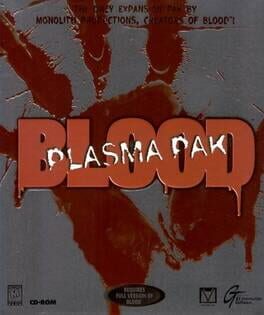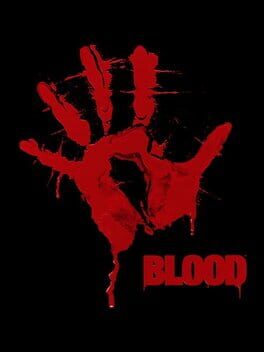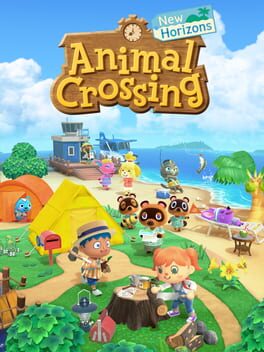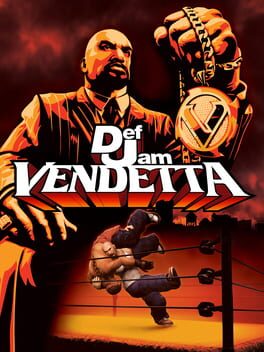2016
Fairly decent platformer that makes no attempt to hide the fact that it's a halfway point between old DKC and new DKC. (Kaze is literally Dixie Kong's moveset with Klonoa ears.) It's a pretty well-made game, but it's quite short and a bit too easy until the halfway point. The $20 asking price is a bit steep for what it is, but if you can get it on sale, you can do a heck of a lot worse.
Zero Mission was my first Metroid ever - besides my fumbling attempts to understand Super Metroid as a kid, which are best left unremarked-upon - so I'll always have a soft spot for it. That said, I truly do think that it's one of the best Metroidvanias out there, and it manages to avoid a lot of the annoying pitfalls that other games in its genre exhibit.
More than anything, Zero Mission is punchy and to the point: it doesn't waste your time with red herrings, barren open areas, or needless difficulty spikes. The Chozo statues that mark your map are a subtle addition to the series's usual blueprint, but they're actually one of the best design decisions in the game. They give newbies some much-needed direction - especially once the game opens up - but experienced players can forgo the hint and sequence-break as much as they desire.
Zero Mission isn't shy about borrowing its basic design directly from Super Metroid - even handing you some familiar power-ups right as the game ends - but as a whole, I would say that it works better as the archetypical Metroid experience even more than the classic that birthed it. Super Metroid is an all-time great game, but it has a lot of sharp corners that you can get caught on, especially if you aren't versed in the somewhat idiosyncratic approach of the series.
There's nothing like the "noob bridge" or the mandatory shinespark tunnel in Zero Mission, and while those make sense in context, that decision is probably for the best. The smoother controls and more functional map help a lot, too. As with all the Metroid games, I was pleasantly surprised at how difficult some of the final puzzles were during my 100% run, but none of them felt unfair.
Like fellow genre standout Aria of Sorrow, Zero Mission's triumph is mostly in the small details rather than any individual facet of its design. This is just a damn good game through and through.
That said, the final sequence is legitimately one of the best surprises in video games, and an extremely creative way to reference one of the most memorable Easter eggs of its era. I'm always a big fan of games that manage to turn the tables on the player's agency in a way that doesn't feel contrived or unfair, and taking Samus's suit away is one of the best examples. And when you finally get it back, the surge of power you get from running around the ship and screw attacking all those annoying space pirates is just a superb moment.
Overall, as an introduction to one of the most consistent series in video games, Zero Mission delivers on every level. For me, I think it's probably the most successful remake of its kind, up there with RE2. It's one of the best games you can beat in a single sitting, so if you can spare a few hours on a Sunday afternoon, this is one you definitely shouldn't miss.
More than anything, Zero Mission is punchy and to the point: it doesn't waste your time with red herrings, barren open areas, or needless difficulty spikes. The Chozo statues that mark your map are a subtle addition to the series's usual blueprint, but they're actually one of the best design decisions in the game. They give newbies some much-needed direction - especially once the game opens up - but experienced players can forgo the hint and sequence-break as much as they desire.
Zero Mission isn't shy about borrowing its basic design directly from Super Metroid - even handing you some familiar power-ups right as the game ends - but as a whole, I would say that it works better as the archetypical Metroid experience even more than the classic that birthed it. Super Metroid is an all-time great game, but it has a lot of sharp corners that you can get caught on, especially if you aren't versed in the somewhat idiosyncratic approach of the series.
There's nothing like the "noob bridge" or the mandatory shinespark tunnel in Zero Mission, and while those make sense in context, that decision is probably for the best. The smoother controls and more functional map help a lot, too. As with all the Metroid games, I was pleasantly surprised at how difficult some of the final puzzles were during my 100% run, but none of them felt unfair.
Like fellow genre standout Aria of Sorrow, Zero Mission's triumph is mostly in the small details rather than any individual facet of its design. This is just a damn good game through and through.
That said, the final sequence is legitimately one of the best surprises in video games, and an extremely creative way to reference one of the most memorable Easter eggs of its era. I'm always a big fan of games that manage to turn the tables on the player's agency in a way that doesn't feel contrived or unfair, and taking Samus's suit away is one of the best examples. And when you finally get it back, the surge of power you get from running around the ship and screw attacking all those annoying space pirates is just a superb moment.
Overall, as an introduction to one of the most consistent series in video games, Zero Mission delivers on every level. For me, I think it's probably the most successful remake of its kind, up there with RE2. It's one of the best games you can beat in a single sitting, so if you can spare a few hours on a Sunday afternoon, this is one you definitely shouldn't miss.
1985
The original Super Mario Bros. is a surprisingly difficult game to review, because its basic framework is laser-etched into our cultural consciousness, but almost nobody has legitimately beaten it. (Yeah, okay, maybe you saved Princess Peach as a kid, but let's be honest: you used the warp zones just like everybody else.) Obviously, everyone knows that Mario stomps on Goombas and ducks down warp pipes, but comparatively few people appreciate the emphatic joy of becoming Fire Mario on a rough stage, or just how damn difficult 8-2 and 8-3 are.
As a whole, I think we can all agree that SMB is a game of such historic magnitude that everyone should play through its first few levels at least once, but does that make it a great game? Sadly, not really. Like a lot of pioneering titles from the inchoate days of the industry, Super Mario Bros. is a victim of its own success. Today, its slippery gamefeel, RNG-heavy level design, and sludgy water levels serve as a reminder of just how far Super Mario Bros. 3 pushed the basic run-and-jump framework to a creative peak that no one could have foreseen.
Still, that doesn't mean that you have to strap on your nostalgia blinders in order to enjoy SMB in 2021, and that's more than I can say for many classics of the 8-bit age. After years of Super Meat Boy, Celeste, and even New Super Mario Bros. refining the formula, the most striking thing about playing this game today is just how random every aspect of the game is. From the Bullet Bill cannons to those damn jumping fish, and of course the mysteries of the Hammer Bros. throw pattern, I spent a lot of time hoping for a good dice rolls while trudging my way through World 8 over and over. In other words, it's tough to memorize a pattern when no pattern exists. (Conversely, I suggest looking up the solutions to the handful of labyrinth levels, because they don't really make a lot of sense even when you know what to do, and they can easily eat up all your lives.)
If you're willing to give yourself the privilege of a per-level save state (or at least the "hidden" continues trick, which most of us didn't know about as kids), the original SMB is a pretty fun way to spend a few hours, especially switching off with a friend. But if you're trying to beat it legitimately, good luck to you. You're going to need it.
As a whole, I think we can all agree that SMB is a game of such historic magnitude that everyone should play through its first few levels at least once, but does that make it a great game? Sadly, not really. Like a lot of pioneering titles from the inchoate days of the industry, Super Mario Bros. is a victim of its own success. Today, its slippery gamefeel, RNG-heavy level design, and sludgy water levels serve as a reminder of just how far Super Mario Bros. 3 pushed the basic run-and-jump framework to a creative peak that no one could have foreseen.
Still, that doesn't mean that you have to strap on your nostalgia blinders in order to enjoy SMB in 2021, and that's more than I can say for many classics of the 8-bit age. After years of Super Meat Boy, Celeste, and even New Super Mario Bros. refining the formula, the most striking thing about playing this game today is just how random every aspect of the game is. From the Bullet Bill cannons to those damn jumping fish, and of course the mysteries of the Hammer Bros. throw pattern, I spent a lot of time hoping for a good dice rolls while trudging my way through World 8 over and over. In other words, it's tough to memorize a pattern when no pattern exists. (Conversely, I suggest looking up the solutions to the handful of labyrinth levels, because they don't really make a lot of sense even when you know what to do, and they can easily eat up all your lives.)
If you're willing to give yourself the privilege of a per-level save state (or at least the "hidden" continues trick, which most of us didn't know about as kids), the original SMB is a pretty fun way to spend a few hours, especially switching off with a friend. But if you're trying to beat it legitimately, good luck to you. You're going to need it.
2019
Borderlands 3 is the gaming equivalent of eating an entire container of saltines: it's exactly what it says on the tin, yet it's incredibly underwhelming, and no matter how much you eat, you still feel hungry afterward.
Given that the saltine factory known as Gearbox tried to branch out with exciting new flavors that failed spectacularly - Battleborn, for one - the studio's return to the franchise that made them famous was always going to feel like a bit desultory. That said, Borderlands 3 takes it to such an extent that it's actually surprising that the game managed to sell so many copies. It has the slipshod feel of a game created to fulfill a contract - or perhaps to keep the lights on.
Every aspect of B3 feels perfunctory at best and outright insulting at worst. Gearbox has recreated its signature endless conveyor belt of wacky guns with a few new creative twists, but besides that, there's basically nothing interesting or engaging here. The combat is still imprecise and overwhelming in equal measure, the new heroes are mostly just rehashes of old concepts that weren't that exciting to begin with, and the quest and build design feels straight out of 2007. Borderlands has never been a good RPG, but B3 isn't a particularly good FPS, either.
Still, what really sinks B3 isn't its lack of creativity, but rather its incredibly obnoxious writing. Look, I've never been a huge fan of the franchise's sense of humor, but I was at least invested in the story of Borderlands 2. Considering how B3 puts its story front-and-center, this may be the worst-written video game I've ever played. It's certainly the most annoying. Not only is the main plot of the game a complete rehash of previous entries, every character is a meme-spouting stereotype who seems to exist only to scream bad jokes in your ear. And I do mean SCREAM - it feels like every member of the cast cannot express themselves without straining their vocal cords.
If you have three friends who enjoy looter shooters and don't mind muting the game's dialogue, you might have an alright time with Borderlands 3, especially if you have nostalgia for the series' heyday. Taken as a whole, however, it's a lazy, crass sequel to a pioneering series that deserves a lot better.
Given that the saltine factory known as Gearbox tried to branch out with exciting new flavors that failed spectacularly - Battleborn, for one - the studio's return to the franchise that made them famous was always going to feel like a bit desultory. That said, Borderlands 3 takes it to such an extent that it's actually surprising that the game managed to sell so many copies. It has the slipshod feel of a game created to fulfill a contract - or perhaps to keep the lights on.
Every aspect of B3 feels perfunctory at best and outright insulting at worst. Gearbox has recreated its signature endless conveyor belt of wacky guns with a few new creative twists, but besides that, there's basically nothing interesting or engaging here. The combat is still imprecise and overwhelming in equal measure, the new heroes are mostly just rehashes of old concepts that weren't that exciting to begin with, and the quest and build design feels straight out of 2007. Borderlands has never been a good RPG, but B3 isn't a particularly good FPS, either.
Still, what really sinks B3 isn't its lack of creativity, but rather its incredibly obnoxious writing. Look, I've never been a huge fan of the franchise's sense of humor, but I was at least invested in the story of Borderlands 2. Considering how B3 puts its story front-and-center, this may be the worst-written video game I've ever played. It's certainly the most annoying. Not only is the main plot of the game a complete rehash of previous entries, every character is a meme-spouting stereotype who seems to exist only to scream bad jokes in your ear. And I do mean SCREAM - it feels like every member of the cast cannot express themselves without straining their vocal cords.
If you have three friends who enjoy looter shooters and don't mind muting the game's dialogue, you might have an alright time with Borderlands 3, especially if you have nostalgia for the series' heyday. Taken as a whole, however, it's a lazy, crass sequel to a pioneering series that deserves a lot better.
2000
Pretty much the same game as 2000, only with more unnecessary customization options and "better" graphics (lol). The commentary is a lot more annoying in this one, however - they feel the need to announce that every late hit is illegal, which seems pretty obvious from where I'm sitting. A little bit of diminishing returns, but it's still a very good time.
1999
I'm not enough of a true handegg-hating nerd to claim that this is the best football game of all time, but it's certainly my favorite. In my opinion, "simulation"-style football doesn't really translate well to video games; there's just too many players on the field, and you just don't get a great sense of control over your team's destiny, especially on defense. Blitz takes the kernel of what we love about football - miraculous 40 yard TD receptions, bone-crunching hits, and scintillating spin moves - and builds an entirely different paradigm around that. The result is pure, distilled fun.
It's worth mentioning that the game's rampant fetishization of the violence inherent to the sport will be off-putting to some. The late hits are harmless enough (to me, at least), but injuries and concussions are played for laughs by both the players and the commentators, and there's no way to turn that part of the game off. If you're looking for a deep and strategic sports experience, Blitz will leave you cold. But if you're looking to crack a few beers with friends, this is really where it's at.
It's worth mentioning that the game's rampant fetishization of the violence inherent to the sport will be off-putting to some. The late hits are harmless enough (to me, at least), but injuries and concussions are played for laughs by both the players and the commentators, and there's no way to turn that part of the game off. If you're looking for a deep and strategic sports experience, Blitz will leave you cold. But if you're looking to crack a few beers with friends, this is really where it's at.
2017
Sonic Mania is the rare retro revival that manages to do it all. It's a love letter to classic Sonic fans that manages to showcase why we love the Blue Blur in the first place, but it's also a great introduction to the series for newcomers. There was definitely an opportunity here to sand down some of the more divisive elements of classic Sonic gameplay - where it can often feel like you need to memorize a level's layout to actually feel like you can master it - but it's so committed to delivering an authentic experience based on those Genesis games that it's hard to fault it for that. It achieves its goals on every level, and I honestly think that the new Zones are some of the best in the game. The new special stage is really tough, but oh well, gotta work hard for those Chaos Emeralds. It's hard to imagine a 2D Sonic game that's better than this, and in a sense, that's the highest possible recommendation I can give to a project like this.
Fallen Order is the epitome of the phrase "nothing special." It's not that it's a bad game - far from it - it's just mind-bogglingly mediocre in every aspect, from its by-the-numbers story to its lobotomized Sekiro-lite combat. I don't need every game I play to be some striking work of originality - hell, I like Uncharted a lot - but it's rare that you encounter one that is so clearly grabbing ideas from the top X best-selling games of the past few years and Frankensteining them together into a money-grubbing monster.
Even considering its lack of interesting ideas, I would still give Fallen Order a higher rating if it had managed to execute those ideas with any sort of grace or finesse, but unfortunately that's not the case. It really just doesn't feel good in any aspect - the lightsaber fights feel mostly weightless and the Force powers just aren't as punchy as you'd want. The platforming is particularly rough, too.
If you're a big Star Wars fan, you'll probably still enjoy Fallen Order if you can accept it for what it is - a middle-of-the-road triple-A game. For me, it's just an embodiment of a lot of trends I dislike in the current crop of big-budget games, and as a result, I can't really recommend it to anyone else. Not bad, just boring.
Even considering its lack of interesting ideas, I would still give Fallen Order a higher rating if it had managed to execute those ideas with any sort of grace or finesse, but unfortunately that's not the case. It really just doesn't feel good in any aspect - the lightsaber fights feel mostly weightless and the Force powers just aren't as punchy as you'd want. The platforming is particularly rough, too.
If you're a big Star Wars fan, you'll probably still enjoy Fallen Order if you can accept it for what it is - a middle-of-the-road triple-A game. For me, it's just an embodiment of a lot of trends I dislike in the current crop of big-budget games, and as a result, I can't really recommend it to anyone else. Not bad, just boring.
2011
Death Wish is a fan-created map pack for Blood that is not only far better than anything in the base game, it might be the best fan-created maps I've played for any game, except maybe Doom. If you're finding Blood to be a little too old-school for your liking, play this instead. A phenomenal achievement.
1997
As much as I love Blood, the version of it that you can buy these days has one glaring weakness, and that's the extra episode Post Mortem. While Post Mortem adds some interesting new enemies to the game, its levels are not particularly well-designed, and it's quite difficult for all the wrong reasons. The final boss level in particular is quite a slog - you fight several copies of the same new enemy, who can basically one-shot you with an AoE attack that has unclear range. They also have a ton of health, so I hope you brought Tesla Cannon ammo. It's not a bad pack of levels, but it's definitely the worst content in the game, hence this rating. If you love the first four episodes, check it out, but otherwise check out Death Wish instead.
1997
As a kid, I played every classic FPS game that I could get my hands on, from forgotten gems like Heretic to bizarre relics like Redneck Rampage. Despite my love for the genre, however, I never got past the first level or two of Blood - for whatever reason, I found its gothic aesthetic to be off-putting, and its array of bizarre weapons confused me.
Now that I've finally played and beaten it, I can say for certain that I thoroughly misjudged Blood. Unlike the army of Doom clones that it was competing with, this is a legitimately unique game with a lot of interesting design choices that stand out even today. Protagonist Caleb isn't a badass soldier strapped to the gills with rocket launchers and flamethrowers - though the Thompson and your shotgun get a lot of use, they're often not the most effective weapons for the variety of situations that the game puts you in.
The most common enemies in Blood are prowling cultists with hitscan weapons that can tear you apart easily even on the default difficulty setting. Since ammo for your stronger weapons is relatively scarce, you have to think ahead and set traps to survive. My most used weapon after the Tommy Gun (its ability to stunlock the cultists is unmatched) was actually the default dynamite sticks - once you get the hang of their throwing arc, you can kill two or three bad guys at a time with it. The flare gun is also surprisingly useful, since its accuracy means you can use it to set targets on fire from afar, and its alternate fire can mess up a group of cultists in a hurry.
Though it does feel thoroughly modern in some aspects, Blood is still a retro game at its core. My biggest complaint with the game is that its difficulties feel a bit unbalanced and poorly-implemented - unlike other games of the era, higher difficulties boost enemy health and their response time, which means you can get torn to shreds by 2 or 3 cultists in a second or two if you aren't careful. I played through most of the first episode on Well Done (UV equivalent) before giving up due to frustration. I restarted on the default Lightly Broiled setting, which is a stout enough challenge, but was definitely a bit too easy in parts. It's worth noting that I played on the source port NBlood for the "authentic experience" but the Steam remaster of the game has a custom difficulty setting that allows you to fiddle with some of the options for a better experience, so I would recommend that if you're interested in the game.
Another minor complaint: the first boss of the game (the stone gargoyle) is by far the hardest, and I'm not sure the designers of the game realize that. I managed to beat the big bad final boss Tchernobog in about ten seconds, which was a bit underwhelming. As a whole, though, Blood is a thoroughly creative game with shockingly good level design and one of the best arsenals in a first-person shooter. If you're interested at all in the genre, I definitely recommend it. It does show its age in spots, but it's still a great experience.
Now that I've finally played and beaten it, I can say for certain that I thoroughly misjudged Blood. Unlike the army of Doom clones that it was competing with, this is a legitimately unique game with a lot of interesting design choices that stand out even today. Protagonist Caleb isn't a badass soldier strapped to the gills with rocket launchers and flamethrowers - though the Thompson and your shotgun get a lot of use, they're often not the most effective weapons for the variety of situations that the game puts you in.
The most common enemies in Blood are prowling cultists with hitscan weapons that can tear you apart easily even on the default difficulty setting. Since ammo for your stronger weapons is relatively scarce, you have to think ahead and set traps to survive. My most used weapon after the Tommy Gun (its ability to stunlock the cultists is unmatched) was actually the default dynamite sticks - once you get the hang of their throwing arc, you can kill two or three bad guys at a time with it. The flare gun is also surprisingly useful, since its accuracy means you can use it to set targets on fire from afar, and its alternate fire can mess up a group of cultists in a hurry.
Though it does feel thoroughly modern in some aspects, Blood is still a retro game at its core. My biggest complaint with the game is that its difficulties feel a bit unbalanced and poorly-implemented - unlike other games of the era, higher difficulties boost enemy health and their response time, which means you can get torn to shreds by 2 or 3 cultists in a second or two if you aren't careful. I played through most of the first episode on Well Done (UV equivalent) before giving up due to frustration. I restarted on the default Lightly Broiled setting, which is a stout enough challenge, but was definitely a bit too easy in parts. It's worth noting that I played on the source port NBlood for the "authentic experience" but the Steam remaster of the game has a custom difficulty setting that allows you to fiddle with some of the options for a better experience, so I would recommend that if you're interested in the game.
Another minor complaint: the first boss of the game (the stone gargoyle) is by far the hardest, and I'm not sure the designers of the game realize that. I managed to beat the big bad final boss Tchernobog in about ten seconds, which was a bit underwhelming. As a whole, though, Blood is a thoroughly creative game with shockingly good level design and one of the best arsenals in a first-person shooter. If you're interested at all in the genre, I definitely recommend it. It does show its age in spots, but it's still a great experience.
I had no idea what a new Animal Crossing game would look like in the year 2020, but as a die-hard fan, I was very excited. Well, it turns out the developers didn't really know either, because New Horizons is a thoroughly compromised AC experience with the fun parts replaced by half-hearted crafting mechanics.
To be honest, I don't really enjoy crafting as a game mechanic, but it can definitely be done well. New Horizons' crafting fails at every possible juncture. You can't build in batches, you can't skip the cutscene, and everything feels like it takes 10x longer than it should. These same flaws apply to the game's much-vaunted terraforming system, which is significantly more functional, but requires a ton of effort to do even simple things.
NH's two new mechanics are far from impressive, but they're not the biggest problem with the game. Rather, it's the fact that NH lacks many of the elements that made previous Animal Crossing games so much fun. Everything feels like a chore, and the villagers lack much in the way of personality. Content updates have been few and far between since release, and once you hit a five-star island, there's not a ton left to do other than build the furniture you want, which requires you to grind for recipes incessantly. It's not that NH is a bad game, it's just far from the AC game I want, and that's a shame. At least I have City Folk.
To be honest, I don't really enjoy crafting as a game mechanic, but it can definitely be done well. New Horizons' crafting fails at every possible juncture. You can't build in batches, you can't skip the cutscene, and everything feels like it takes 10x longer than it should. These same flaws apply to the game's much-vaunted terraforming system, which is significantly more functional, but requires a ton of effort to do even simple things.
NH's two new mechanics are far from impressive, but they're not the biggest problem with the game. Rather, it's the fact that NH lacks many of the elements that made previous Animal Crossing games so much fun. Everything feels like a chore, and the villagers lack much in the way of personality. Content updates have been few and far between since release, and once you hit a five-star island, there's not a ton left to do other than build the furniture you want, which requires you to grind for recipes incessantly. It's not that NH is a bad game, it's just far from the AC game I want, and that's a shame. At least I have City Folk.
2003
If you're a certain breed of hopeless wrestling nerd (like me), you probably already know that this game was supposed to be WCW Mayhem 2, the AKI Engine follow-up to WCW/NWO Revenge. Well, WCW was already in dire straits by that time, and by some strange twist of fate (no Hardy Boys pun intended) we ended up with a wrestling video game where Funkmaster Flex can powerbomb Method Man instead. But is it any good? Well...sort of.
Featuring half-a-dozen rappers you've heard of and a dozen more that you probably haven't, DJV is in the top echelon of bizarre video game crossovers. No explanation is given as to why well-established musical artists like Ghostface, DMX, and Ludacris would moonlight as indie wrestlers at seedy nightclubs, so it's probably best to accept it and move on without thinking too much about it, because the developers clearly didn't.
Even looking past its premise, Def Jam Vendetta is a deeply strange game on every level. The fact that it uses the famed AKI engine shared by beloved wrestling games like WCW/NWO Revenge and WWF No Mercy means that it's highly playable - and in my opinion, significantly more enjoyable than the actual WWE games of this era - but the fact remains that this is a wrestling game with zero actual wrestlers in it, which makes you wonder who exactly this game is for.
The game's story mode is actually pretty engaging for the era, but it has a few encounters that are just blatantly unfair and unfun, especially the handicap match against Pockets, Snowman, and House at the after hours club. Once you're done with the story - which, let it be said, has some incredibly misogynistic cat-fights and outright softcore porn which are a true testament to how far the industry has come in 20 years - there's really not a lot to Def Jam Vendetta. There are a few bonus characters and stages you can unlock by beating the game with the other heroes, but it's not exactly a fresh experience.
The biggest issue with Def Jam Vendetta isn't the fact that it stars rappers cosplaying as wrestlers, it's the simple truth that it lacks many of the modes and extra content you expect from a wrestling game of this era. There are no exciting match types like tables, ladders, or cage matches, and no create-a-wrestler mode. It's worth noting that even though I played dozens of hours of this game as a kid, I never actually bought it until I was an adult - I just rented it from Blockbuster and played it at friend's houses.
Let's not mince words: the main issues with DJV are alleviated by its sequel, Fight for New York. Unfortunately for AKI fans, though FFNY is a much better game than DJV, it's also not really a wrestling game, either. As such, DJV is a strange experiment that didn't really succeed, but it didn't exactly fail, either. It's simply a fun game to revisit every now and then - especially if you're an AKI fan like me.
Featuring half-a-dozen rappers you've heard of and a dozen more that you probably haven't, DJV is in the top echelon of bizarre video game crossovers. No explanation is given as to why well-established musical artists like Ghostface, DMX, and Ludacris would moonlight as indie wrestlers at seedy nightclubs, so it's probably best to accept it and move on without thinking too much about it, because the developers clearly didn't.
Even looking past its premise, Def Jam Vendetta is a deeply strange game on every level. The fact that it uses the famed AKI engine shared by beloved wrestling games like WCW/NWO Revenge and WWF No Mercy means that it's highly playable - and in my opinion, significantly more enjoyable than the actual WWE games of this era - but the fact remains that this is a wrestling game with zero actual wrestlers in it, which makes you wonder who exactly this game is for.
The game's story mode is actually pretty engaging for the era, but it has a few encounters that are just blatantly unfair and unfun, especially the handicap match against Pockets, Snowman, and House at the after hours club. Once you're done with the story - which, let it be said, has some incredibly misogynistic cat-fights and outright softcore porn which are a true testament to how far the industry has come in 20 years - there's really not a lot to Def Jam Vendetta. There are a few bonus characters and stages you can unlock by beating the game with the other heroes, but it's not exactly a fresh experience.
The biggest issue with Def Jam Vendetta isn't the fact that it stars rappers cosplaying as wrestlers, it's the simple truth that it lacks many of the modes and extra content you expect from a wrestling game of this era. There are no exciting match types like tables, ladders, or cage matches, and no create-a-wrestler mode. It's worth noting that even though I played dozens of hours of this game as a kid, I never actually bought it until I was an adult - I just rented it from Blockbuster and played it at friend's houses.
Let's not mince words: the main issues with DJV are alleviated by its sequel, Fight for New York. Unfortunately for AKI fans, though FFNY is a much better game than DJV, it's also not really a wrestling game, either. As such, DJV is a strange experiment that didn't really succeed, but it didn't exactly fail, either. It's simply a fun game to revisit every now and then - especially if you're an AKI fan like me.
